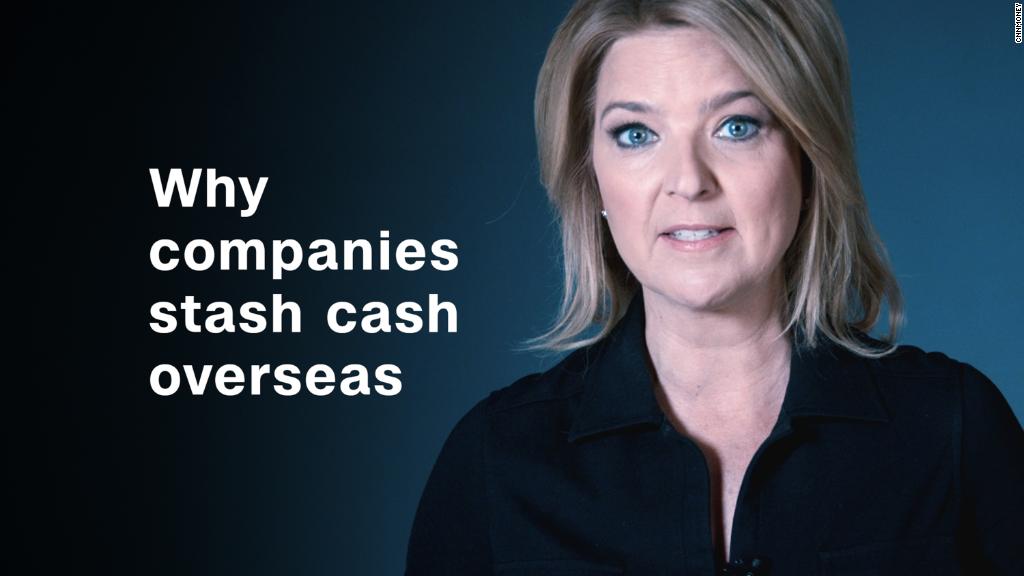
An estimated $2.6 trillion in American corporate profits is sitting in overseas bank accounts, about half of that in cash.
It's a remarkable pile of money -- idled outside U.S. borders to avoid a 35% American tax rate on profits earned overseas.
The tax isn't due until the money comes back to the United States. That's why corporations like Apple, Microsoft, Google and General Electric leave huge amounts of cash overseas.
Consider Apple: It has $252 billion overseas, more than any other big company. The amount sitting in the bank is roughly the size of the economy of Finland. It's enough to buy Ford, four and a half times over.
In short, a lot of money. And it's money not being spent on new plants or technology.
As this cash hoard has grown, so have chief executives' pleas to change the system -- to tax foreign profits in the country where they are earned, and not at the 35% American rate.
Related: What's in the bill for businesses
Already, big companies employ elaborate tax strategies to lower their tax bills on both foreign and domestic profits. There's an old joke in business school that the most important job in any company is not the CEO or CFO, but the tax attorney. After loopholes and tax breaks, the Congressional Budget Office estimates that the average effective tax rate for U.S. corporations is 18.6%.
Under the House GOP tax bill, the system would change. The main federal tax rate would be 20%, not 35%, and overseas profits would no longer be subject to U.S tax. Instead they would be taxed by the country where the money is made.
In some instances, companies would be required to pay a minimum amount of tax on foreign profits. And companies with cash stashed overseas would have to pay a one-time 12% rate. The bill's authors hope that will entice the companies to bring the money back to the United States.
The big question: Will giving companies a so-called repatriation holiday lead to higher worker wages and new factories at home? Or will it go to share buybacks and higher dividends for investors?

